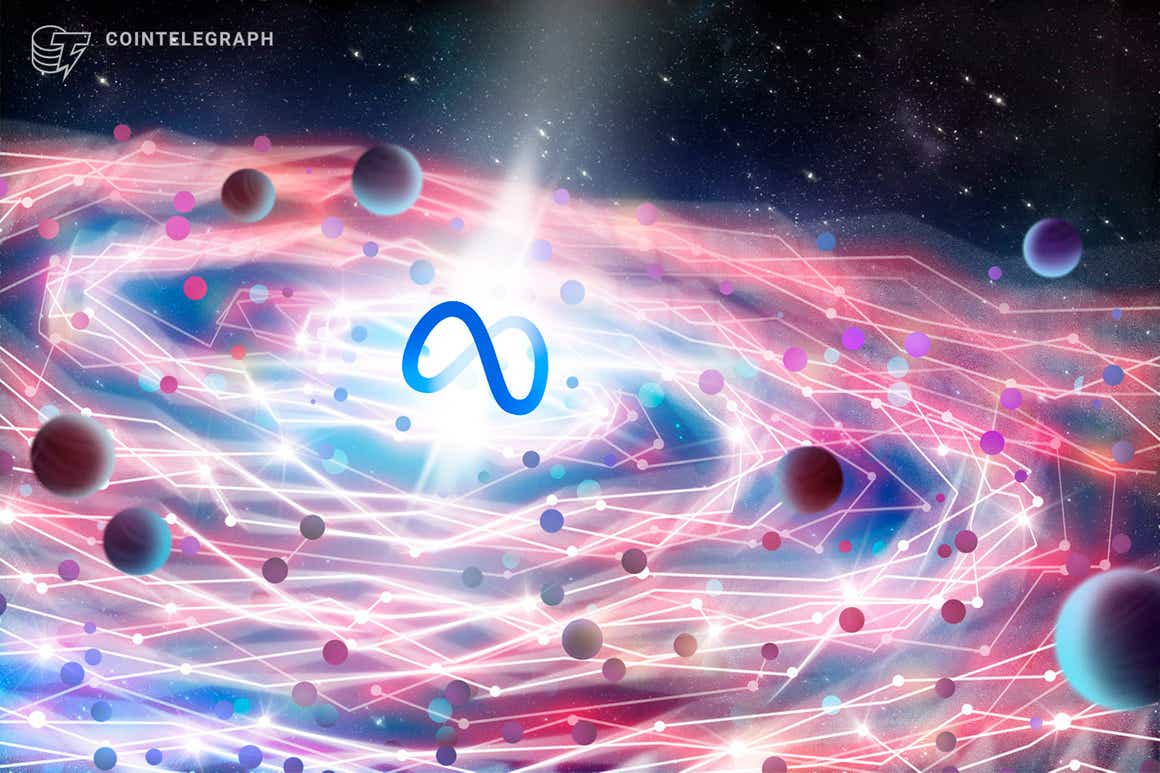Facebook has been planning its foray into the metaverse for some time now — possibly even several years. But it’s only recently that its ambitious

Facebook has been planning its foray into the metaverse for some time now — possibly even several years. But it’s only recently that its ambitious expansion plans have catapulted the concept into mainstream headlines across the globe. Renaming the parent company to Meta was perhaps the biggest, boldest statement of intent the firm could make. Suddenly, major news outlets were awash with explainer articles, while finance websites have been bubbling with excitement about the investment opportunities in this newly emerging sector.
However, within the crypto sphere, the response has been understandably more muted. After all, decentralized versions of the metaverse have been in development around these parts for several years now. Even worse, the tech giants’ cavalier attitude to user privacy and data harvesting has informed many of the most cherished principles in the blockchain and crypto sector.
Nevertheless, metaverse tokens such as Decentraland (MANA) and Sandbox (SAND), enjoyed extensive rallies on the back of the news, and within a few days of Facebook’s announcement, decentralized metaverse project The Sandbox received $93 million in funding from investors, including Softbank.
But now that the dust has settled, do the company-formerly-known-as-Facebook’s plans represent good news for nonfungible token (NFT) and metaverse projects in crypto? Or does Meta have the potential to sink this still-nascent sector?
What is known so far?
Facebook hasn’t released many details about what can be expected from its version of the metaverse. A promotional video featuring the company co-founder and CEO Mark Zuckerberg, himself, along with his metaverse avatar, looked suitably glossy. Even so, it was scant with information about how things will actually work under the hood. However, based on precedent and what is known, some distinctions can be made between what Facebook is likely to be planning and the established decentralized metaverse projects.
Facebook has some form when it comes to questions over whether it will adopt decentralized infrastructure based on its efforts to launch a cryptocurrency. Diem, formerly Libra, is a currency run by a permissioned network of centralized companies. David Marcus, who heads up Diem, has also confirmed that the project, and by extension Facebook, is also considering NFTs integrated with Novi, the Diem-compatible wallet.
Based on all this, it’s fair to say that the Facebook metaverse would have an economy centered around the Diem currency, with NFT-based assets issued on the permissioned Diem network.
Announcing @Meta — the Facebook company’s new name. Meta is helping to build the metaverse, a place where we’ll play and connect in 3D. Welcome to the next chapter of social connection. pic.twitter.com/ywSJPLsCoD
— Meta (@Meta) October 28, 2021
The biggest difference between Facebook’s metaverse, and crypto’s metaverse projects, is that the latter operates on open, permissionless, blockchain architecture. Any developer can come and build a metaverse application on an open blockchain, and any user can acquire their own virtual real estate and engage with virtual assets.
Critically, one of the biggest benefits of a decentralized, open architecture is that users can join and move around barrier-free between different metaverses. Interoperability protocols reduce friction between blockchains, allowing assets, including cryptocurrencies, stablecoins, utility tokens, NFTs, loyalty points, or anything else to be transferable across chains.
So the most crucial question regarding Facebook’s plans is around the extent to which the company plans for its metaverse to be interoperable, and metaverse assets to be fungible with other, non-Facebook issued assets.
From the standpoint of the decentralized metaverse, it doesn’t necessarily sound like great news. After all, Meta’s global user base dwarfs crypto’s. But there’s another way of looking at it, according to Robbie Ferguson, co-founder of Immutable, a layer two platform for NFTs:
“Even if [Meta] decides to pursue a closed ecosystem, it is still a fundamental core admission of the value that digital ownership provides — and the fact that the most valuable battleground of the future will be who owns the infrastructure of digital universes.”
Centralization could be the most limiting factor
Based on the fact that Diem is already a closed system, it seems likely that the Facebook metaverse will also be a closed ecosystem that won’t necessarily allow direct or easy interaction with decentralized metaverses. Such a “walled garden” approach would suit the company’s monopolistic tendencies but limit the potential for growth or Facebook-issued NFTs to attain any real-world value.
Furthermore, as Nick Rose Ntertsas CEO and founder of an NFT marketplace Ethernity Chain pointed out, users are becoming weary of Facebook’s centralized dominance. He added in a conversation with Cointelegraph:
“Amidst [the…
cointelegraph.com
